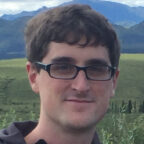Biography
Simon Knapen completed his bachelor and master education at Leuven University (Belgium) in 2009, and obtained his PhD from Rutgers University in 2014, directed by prof. David Shih. He enjoyed 4 years as a postdoc at UC Berkeley/LBNL, before moving to the Institute for Advanced Studies in 2018 for his second postdoc. In the Spring of 2020 he moved to CERN as a junior staff member. He rejoined the LBNL theory group in the Summer of 2021 as a Divisional Fellow.
Research interests
I have a broad interest in all experimental probes of physics beyond the Standard Model, ranging from collider probes, intensity frontier experiments, dark matter experiments and astrophysical probes. My background and training is that of a model builder however, and I like to keep an eye on the models that generate the signatures we study.
In recent years part of my work has been directed at finding new ways of probing BSM physics with ATLAS, CMS and LHCb. Upcoming detector upgrades are particularly exciting to me, as all experiments will have qualitatively new capabilities during the high luminosity run of the LHC. I am also a founding member of the CODEX-b collaboration, which aims at finding long-lived particles at the LHC which are inaccessible to main detectors.
My second main research direction at the moment is to provide the theory support for the rapidly advancing field of low threshold dark matter detection. Recent experimental advances made the direct detection of dark matter with a mass < 1 GeV a realistic possibility, which has lead to interesting theoretical problems: For such low mass dark matter, the standard nuclear recoil picture used in WIMP search no longer applies, because the dark matter wavelength can be comparable or larger than the interparticle spacing of the target material. The dark matter therefore scatters off collective excitations (e.g. phonons) rather than individual nuclei, and the detailed properties of the target become important. I perform various calculations of signal and background rates for both existing and future experiments, accounting for the collective properties of the target. For this work I occasionally collaborate with material science experts in the LBNL molecular foundry.
Current students
Kevin Langhoff (Ph. D.)
Bashi Mandava (Ph. D.)
Former students
Rohith Karur (postbac)
Selected publications
My up-to-date list of publications can be found here.
Burn-out prevention
Burn-out is extremely common in academia. They come in various degrees of severity and are treatable, especially when dealt with early on. Here is an interview with a UC Berkeley professor who researches burn-out. This blog does a good job summarizing the symptoms and treatments. The Dragonfly project is a team of volunteers who deliver evidence-based workshops, programs, and consultation to academic communities around the world. UC Berkeley health services also has helpful resources.
